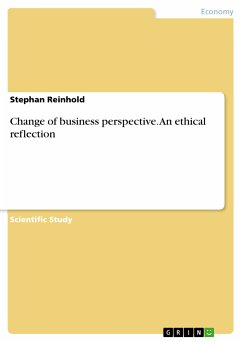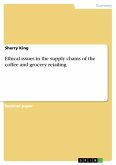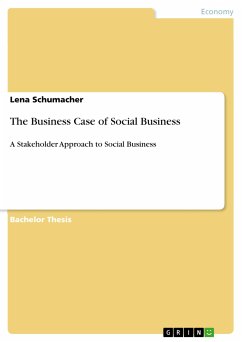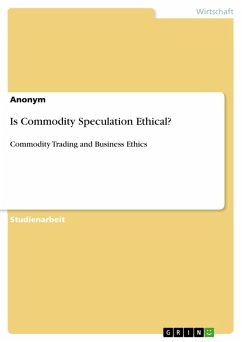Master's Thesis from the year 2011 in the subject Business economics - Business Ethics, Corporate Ethics, grade: Passed with distinction (VG), Blekinge Institute of Technology (MAM/Sektionen för Management), course: MBA Social Sciences\Psychology, language: English, abstract: This Master Thesis work has dealt with the question of how ethics in general can be improved. In today's business world Business Ethical Codes of Conduct (BECC), or more commonly called honour codes, have reached some prominence. However, the question remains still unanswered as to if these measures are really effective, and if so, how efficient they are. This thesis investigated the effect of a BECC by having individuals read it and measuring their ethical attitude by answering a questionnaire. The results were compared to a group not reading the BECC prior to answering the questionnaire. The aim was to investigate if a BECC has an acute effect that may be based on psychological priming. The results do not suggest that a BECC causes a strong shift in moral thinking in the short term, or even acutely. The study arrived at some intriguing findings that it did not set out to discover. The reading of the dilemma itself reduced reported moral values. To the knowledge of the author, to date only one study has investigated and shown the same effect that is generally known to psychology as the mere-exposure effect. A side-alley of investigation was the question whether previous findings on the correlation of age, socio-economic status, and gender (sex) could be confirmed. The previous reports have been contradictory in their findings. The current thesis found supporting evidence that age is positively correlated with moral thinking, i.e. growing age correlated with strengthened moral values, which means that individuals agree more with ethical concepts the older they become. In addition, while socio-economic status did not show any correlation with moral thinking, gender did correlate with ethical values in certain respects. It could be shown, that the above mentioned mere-exposure effect exists for the males but not the females in the test-groups. In summary, changing ethical attitude is possible. However, controlling ethics, i.e. directional influence, is apparently a complicated business that needs more research.
Dieser Download kann aus rechtlichen Gründen nur mit Rechnungsadresse in A, B, BG, CY, CZ, D, DK, EW, E, FIN, F, GR, HR, H, IRL, I, LT, L, LR, M, NL, PL, P, R, S, SLO, SK ausgeliefert werden.









